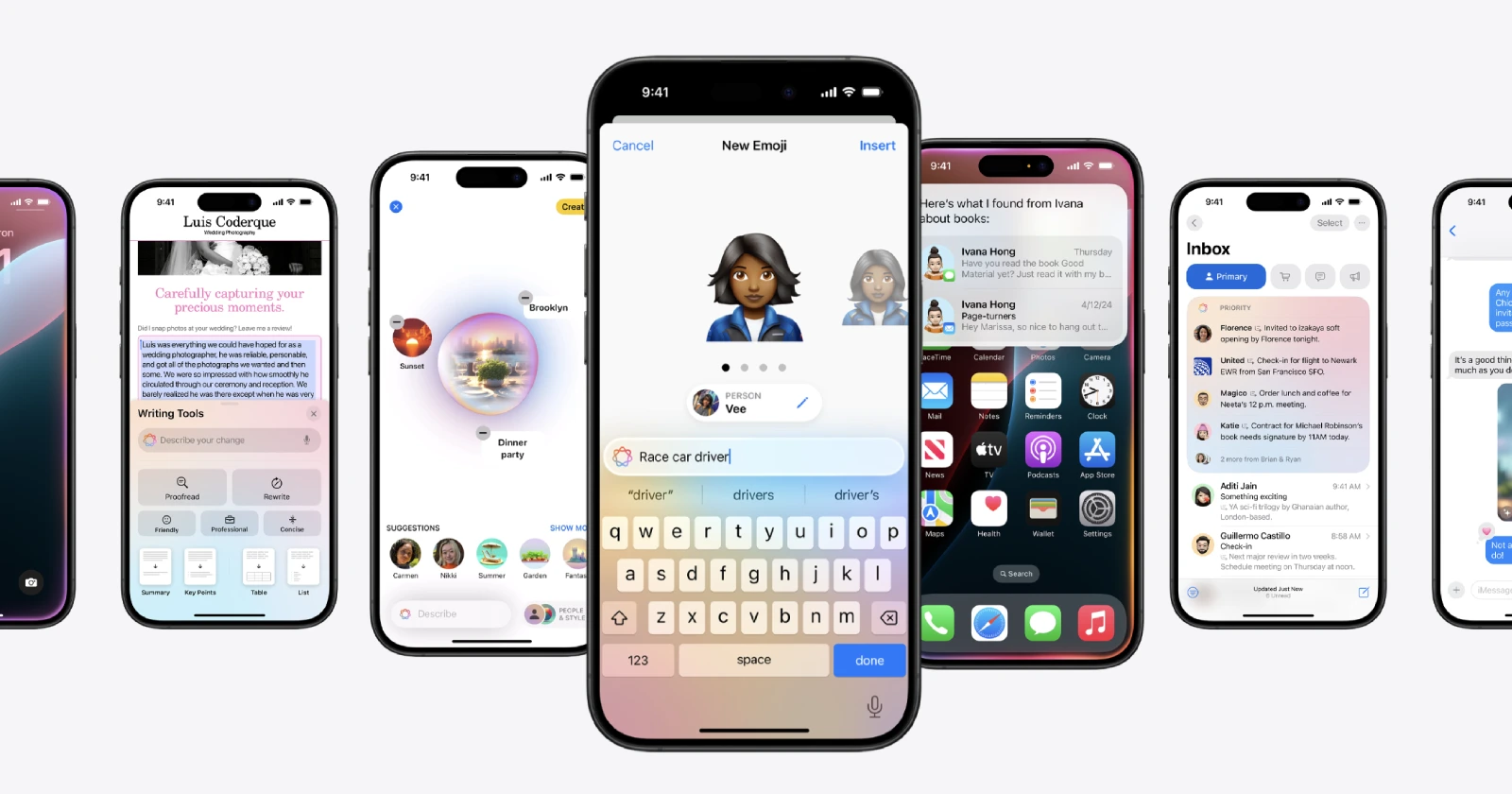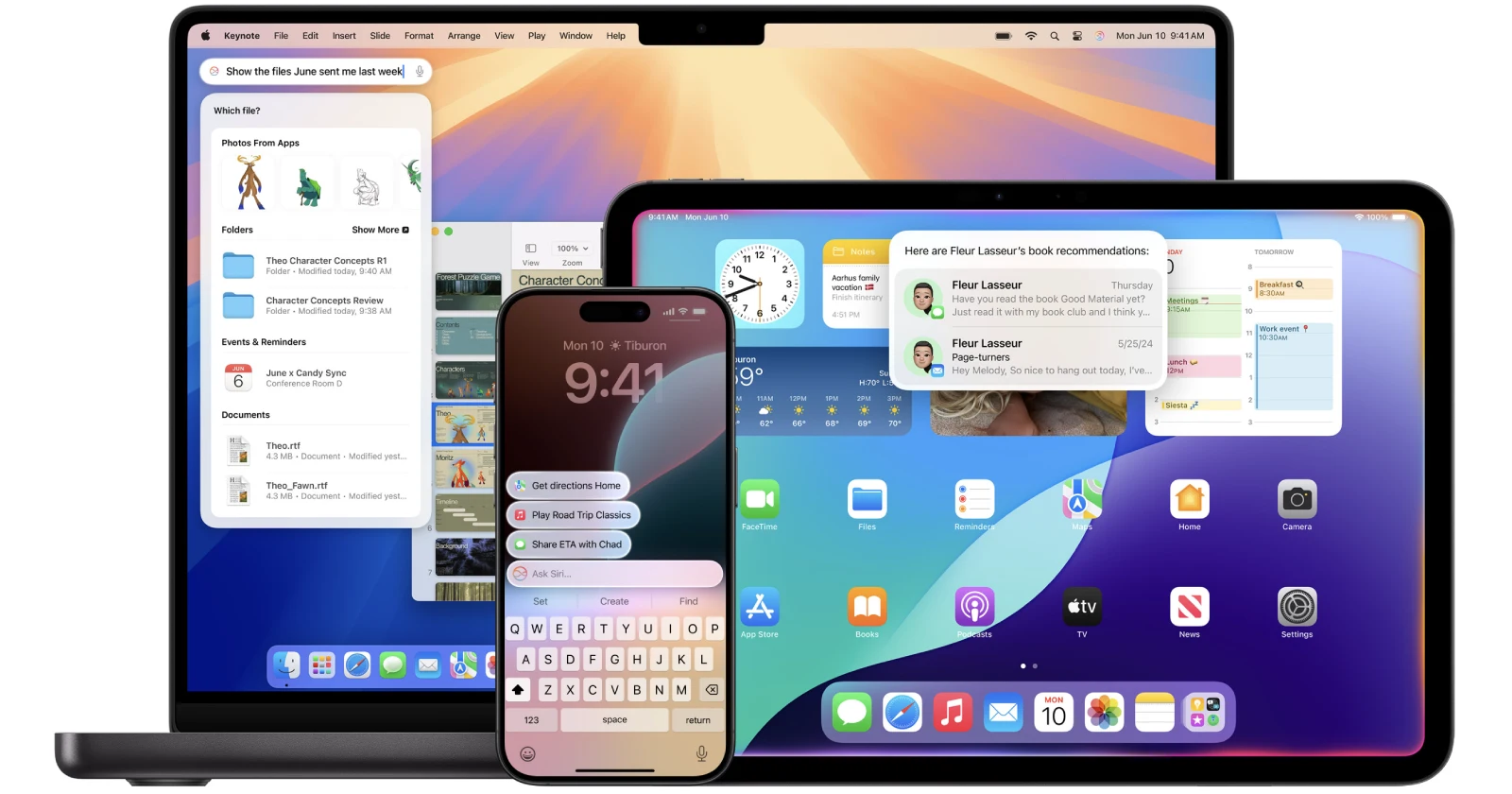When Tim Cook reportedly stepped in front of Apple employees during a recent all-hands meeting, his message was clear yet oddly comforting for anyone who’s been watching the company’s seemingly sluggish AI rollout. “We’ve rarely been first. There was a PC before the Mac; there was a smartphone before the iPhone; there were many tablets before the iPad; there was an MP3 player before iPod,” Cook reminded his team, essentially doubling down on Apple’s tortoise-like approach to innovation.
It’s a familiar refrain from the Cupertino giant. While competitors sprint ahead with flashy AI demos and feature-packed chatbots, Apple has been methodically plodding along, taking its sweet time with Apple Intelligence. And honestly, as someone who’s been pretty underwhelmed by the current AI offerings – I barely use anything beyond the notification summaries – I’m starting to wonder if Apple’s patience will pay off this time around.
The numbers tell an interesting story. While OpenAI’s ChatGPT exploded to 100 million users in just two months, and Google rushed Bard (now Gemini) to market amid internal concerns, Apple Intelligence is still rolling out in phases, with many promised features nowhere to be seen. It’s the classic Apple playbook, but in an industry moving at breakneck speed, is being fashionably late still a winning strategy?
But AI feels different. Unlike previous tech revolutions where Apple could observe, learn, and then leap ahead with superior execution, the AI race is happening in real-time with massive stakes. Cook reportedly told employees that Apple “must” win in AI, suggesting even he recognizes the urgency of the moment.
Behind the scenes, Apple is clearly feeling the pressure, even from Wall Street. Recent reports suggest the company is building its own AI “answer engine” through a new team called Answers, Knowledge, and Information. This team is working on an “answer engine” that can respond to questions using information from across the web, potentially creating a ChatGPT-like experience that could be integrated into Siri, Safari, and other Apple products.
The company is also throwing money at the problem. Apple has signaled it’s open to AI acquisitions, with reports suggesting interest in companies like Perplexity AI. There were even discussions about integrating Google’s Gemini AI into Apple Intelligence, showing just how seriously Apple is taking the competitive threat.
Yet for all this activity, Apple Intelligence still feels remarkably limited compared to what Google and OpenAI are offering. The writing tools are decent, the photo cleanup feature works well enough, and yes, those notification summaries are genuinely helpful. But where’s the conversational AI that can actually compete with ChatGPT? Where’s the search experience that challenges Google?
The talent drain isn’t helping either. Apple has lost several key AI researchers to Meta and other competitors, suggesting that even within Apple, some believe the grass might be greener elsewhere. When your own AI experts are jumping ship, it raises questions about whether the company is moving fast enough internally.
Apple’s cautious approach makes sense from a brand perspective. The company has built its reputation on polished, reliable products that “just work.” Rushing out half-baked AI features could damage that carefully cultivated image. We’ve all seen what happens when tech companies push AI products too quickly – remember Google’s Bard confidently providing incorrect information in its very first demo?
But there’s a real risk that by the time Apple perfects its AI strategy, the market will have moved on. Unlike previous product categories where Apple could afford to be patient, AI is becoming deeply embedded in how people interact with technology daily. Every day Apple waits is another day users become more entrenched in competing ecosystems.
The tortoise strategy worked brilliantly when Apple was entering mature markets with established players. But AI is still being defined, and the companies that shape user expectations now may have lasting advantages. When people think of AI assistance, they think of ChatGPT, not Siri asking if they want to hand off to ChatGPT.
Perhaps Apple’s real bet isn’t on being first or even best, but on being most integrated. While Google and OpenAI excel at standalone AI experiences, Apple’s strength lies in seamlessly weaving technology into users’ daily workflows. The company seems to be banking on the idea that when AI finally works perfectly across all your devices and services, you won’t care that it arrived later than everyone else’s.
Whether this gamble pays off remains to be seen. Apple has certainly earned the benefit of the doubt with its track record of late-but-great product launches. But AI moves faster than consumer electronics, and patience might not be a virtue in this particular race.
For now, I’ll keep using those notification summaries and wait to see if Apple’s methodical approach eventually delivers something that makes me forget all about Gemini and Grok. After all, slow and steady has won the race before.
TechIssuesToday primarily focuses on publishing 'breaking' or 'exclusive' tech news. This means, we are usually the first news website on the whole Internet to highlight the topics we cover daily. So far, our stories have been picked up by many mainstream technology publications like The Verge, Macrumors, Forbes, etc. To know more, head here.



